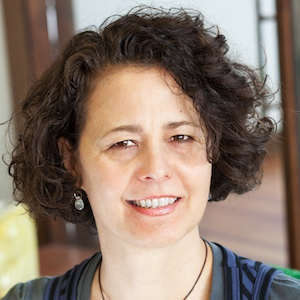I first discovered Italo Calvino’s Six Memos for the Next Millennium in 1995, 10 years after he’d begun writing them for Harvard’s Norton Lectures series. He died unexpectedly just before he was set to embark from Italy to Cambridge to deliver them, after completing five — Lightness, Quickness, Exactitude, Visibility, and Multiplicity.
 With Calvino, we stand at opposite ends of the fulcrum, 15 years on either side of 2000. In 1995, a(nother) time of convergence, Bloomberg had cameras running on tracks over his broadcast newsroom so reporters could swivel around at their desks and go on air in a snap. The Chicago Tribune was consolidating its print and TV properties; The Christian Science Monitor and The New York Times were among those leading the way onto digital platforms. “Synchronicity” was the buzzword.
With Calvino, we stand at opposite ends of the fulcrum, 15 years on either side of 2000. In 1995, a(nother) time of convergence, Bloomberg had cameras running on tracks over his broadcast newsroom so reporters could swivel around at their desks and go on air in a snap. The Chicago Tribune was consolidating its print and TV properties; The Christian Science Monitor and The New York Times were among those leading the way onto digital platforms. “Synchronicity” was the buzzword.
In 2015, public media is converging (and diverging) around talent, rather than technology. The podcasting wave is pulling producers away from stations and networks with the promise of broader creative expression, freedom from formats, and higher salaries. The demand for independent talent is higher than perhaps ever in history. We’ve seen that shift firsthand: AIR’s growth in new producers joining our network increased by 81 percent in 2015, and they are younger and more diverse than ever. Their tools and ideas summon Calvino’s charge toward lightness, quickness, and visibility. Fresh talent — new skills but also new voices and ways of considering media — will lead paradigm shifts across the industry.
With so much in flux, it feels right to consider Calvino’s sixth, unwritten memo, Consistency, as a looking glass into the year to come.
I expect 2016 to be a year of loosening constraints, expansion, and shifting boundaries. As staff jump ship, it opens the way for new talent to step up, and for leadership at organizations to loosen the reins and give the new influx of makers more freedom and space. If you want to ride the flow, you’ll need balance — consistency as a counterweight to change. Being aware and intentional in this time of invention are key to creating work that has impact, that will endure. My advice? Be constant in these three ways:
Human-first technology. We are in the midst of engineering media forms and formats to fit new channels and spaces. If step one is to choose your source material, the most radical beginning is to go to places ripe for invention, places where the demarcations of inequality lie, and observe, absorb, feel what is happening for the citizens living there. Look for the people and rhythms of daily life that define what’s meaningful here. Only after you begin to see patterns emerge should you should you start to make.
Audacity. Give more than your all, consistently and over time this year. Opportunities exist in the margins and at the edges — often scary places where only boldness will take us.
Taking a stand. There are a lot of problems to solve, many choices for where to work and with whom. Know what difference you want to make and for whom. The more clearly you’re willing and able to articulate it, and to ask others if they’re with you or not, the sooner you’ll come to understand who your best collaborators and allies are…and the stronger your work will be.
It is an extraordinarily paradoxical time. We can choose to reinforce a collective helplessness at the disparity and division marking our country and the world today. Or we can use this time of chaos, which is ripe for influencing and shaping the future. You are alive in the world. Use the most of the privilege you have to direct and shape a new media to fostering enlightenment…to embolden and to unify.
Sue Schardt is executive director of AIR, the Association of Independents in Radio.